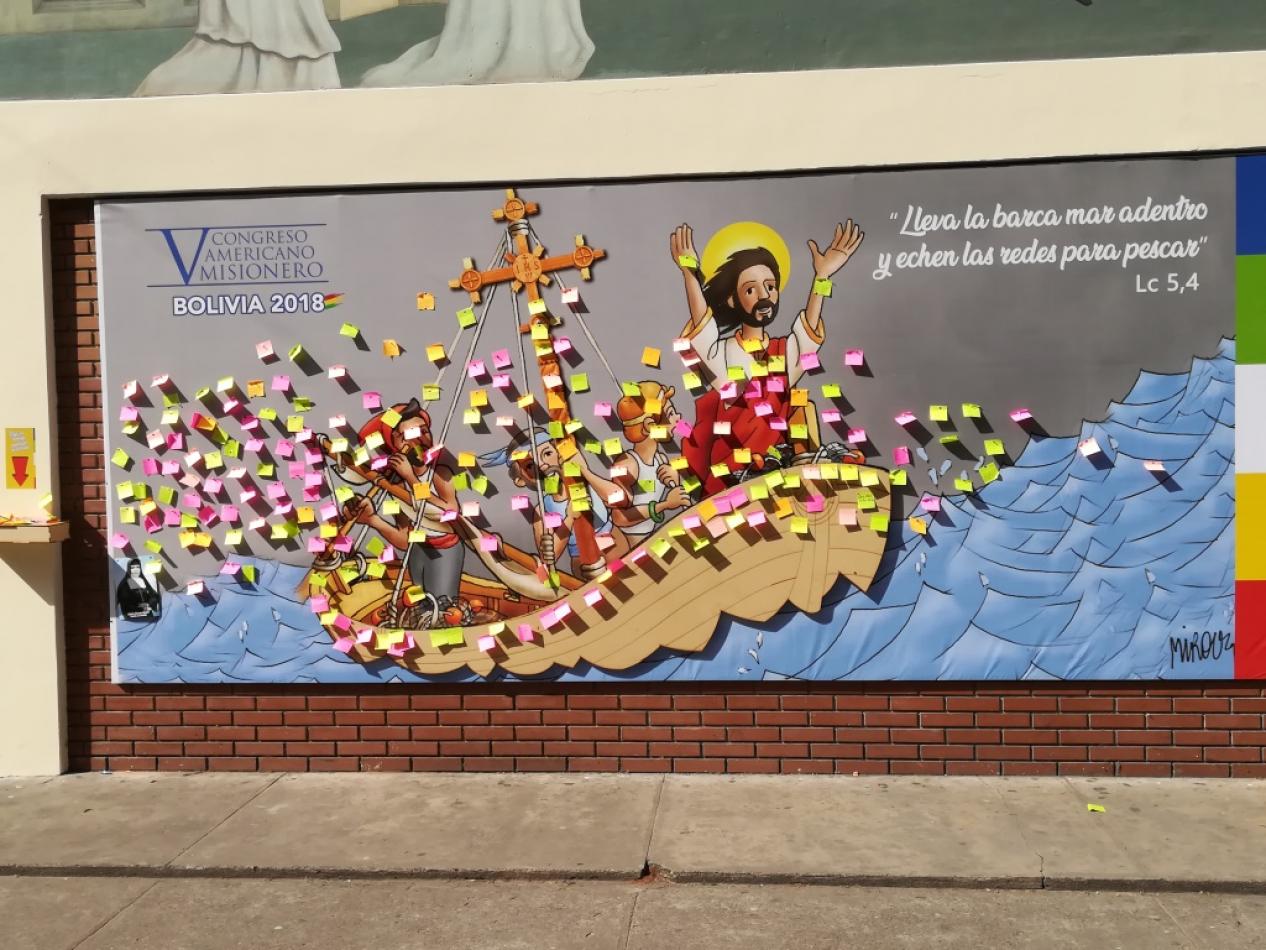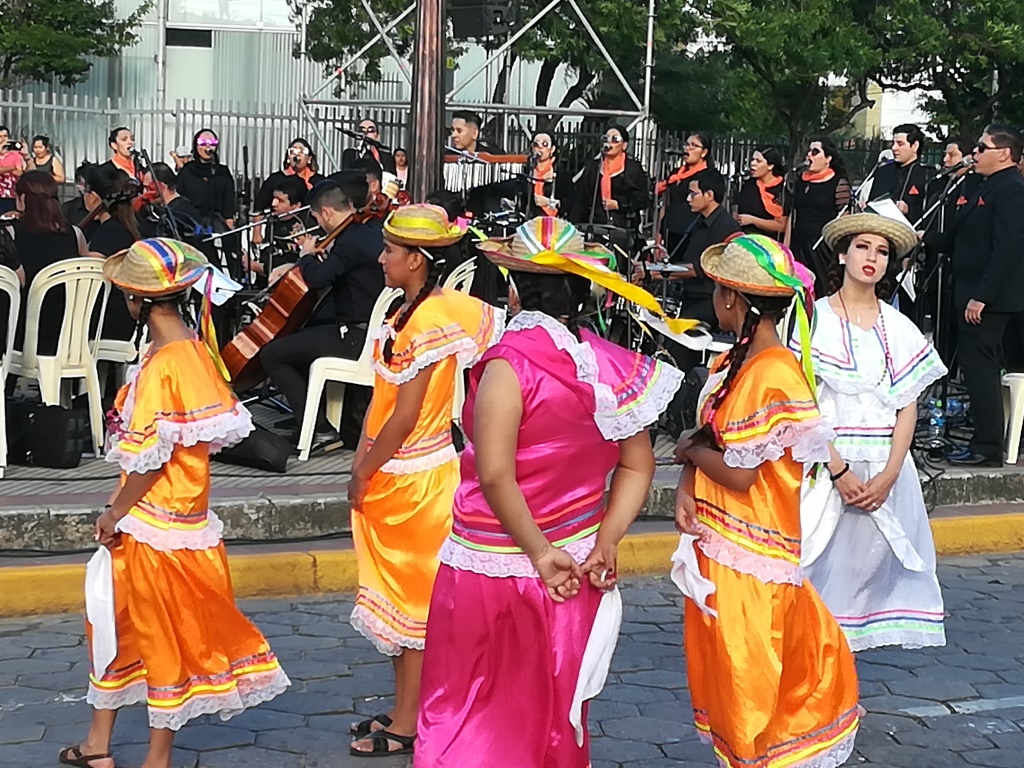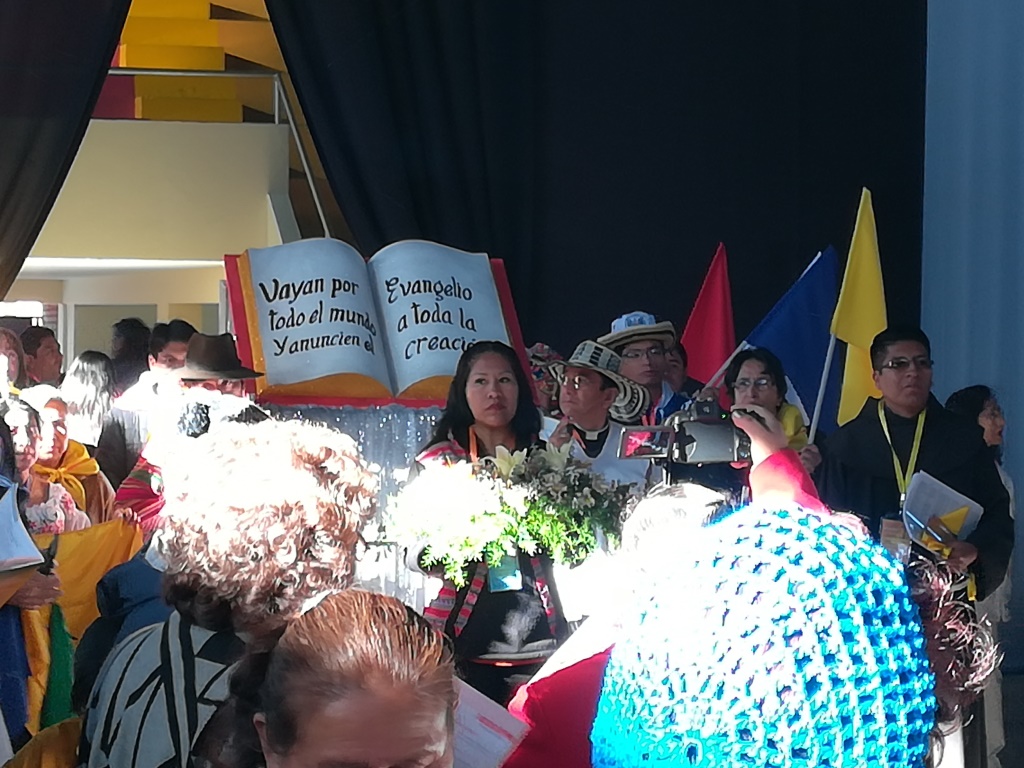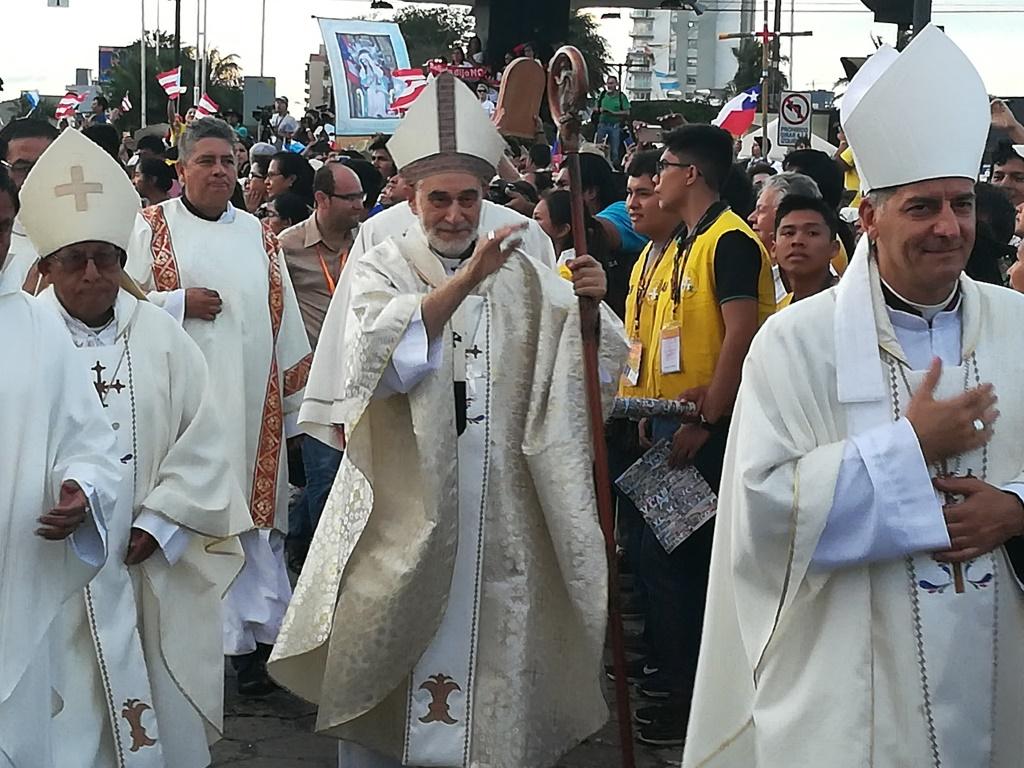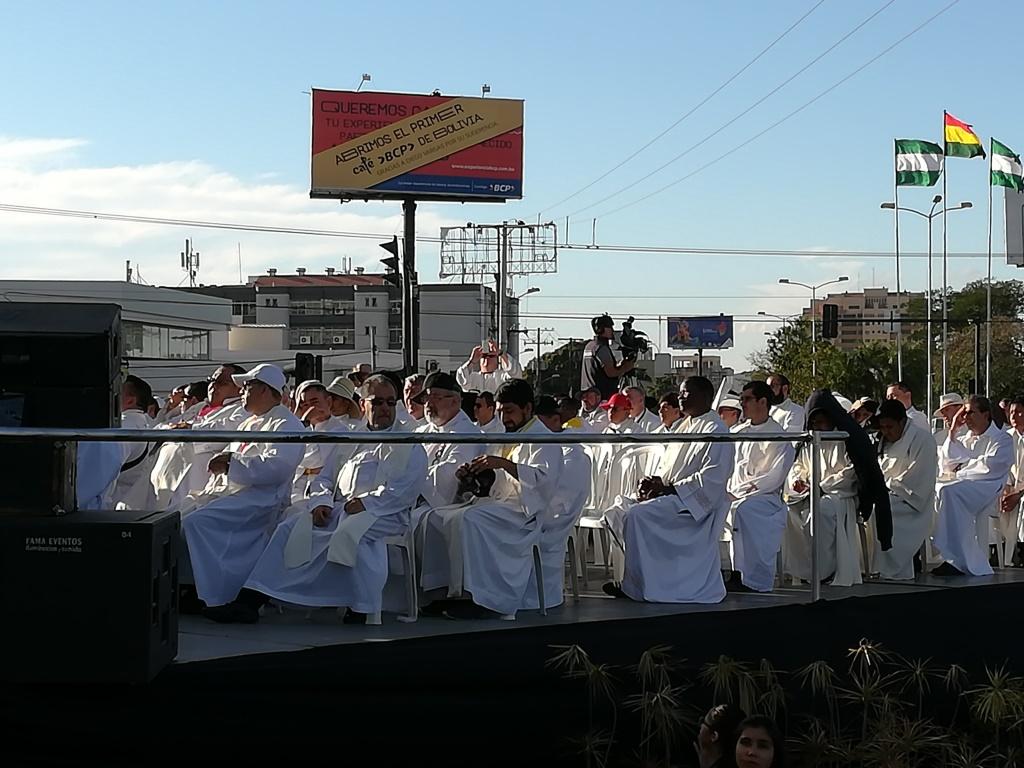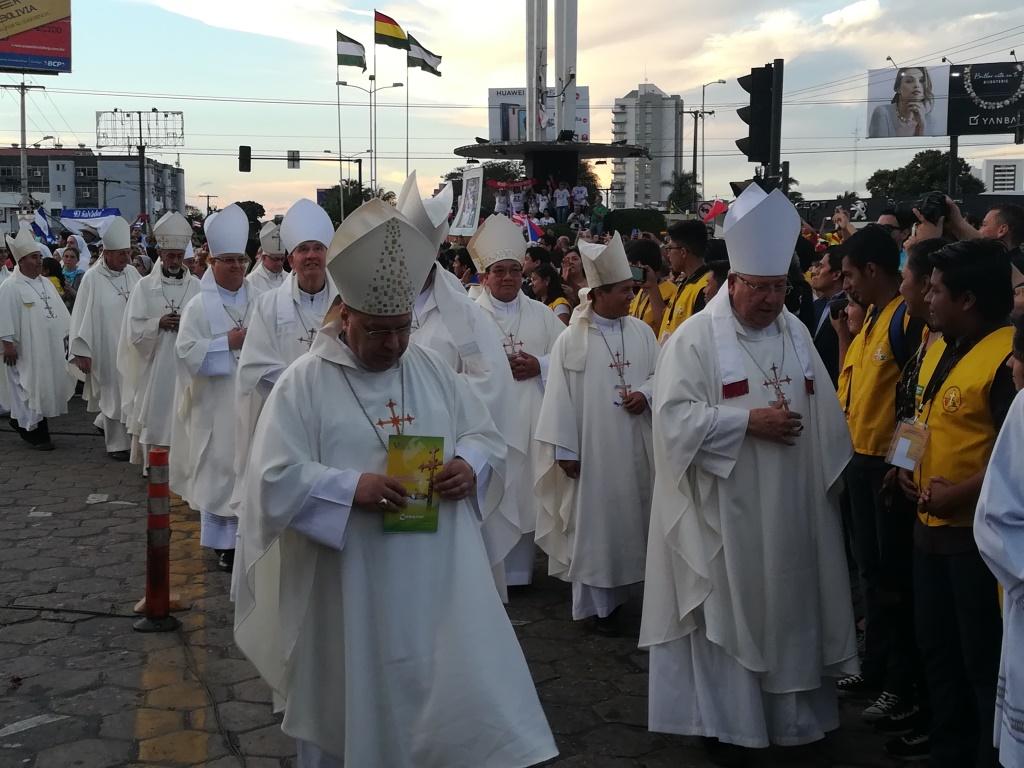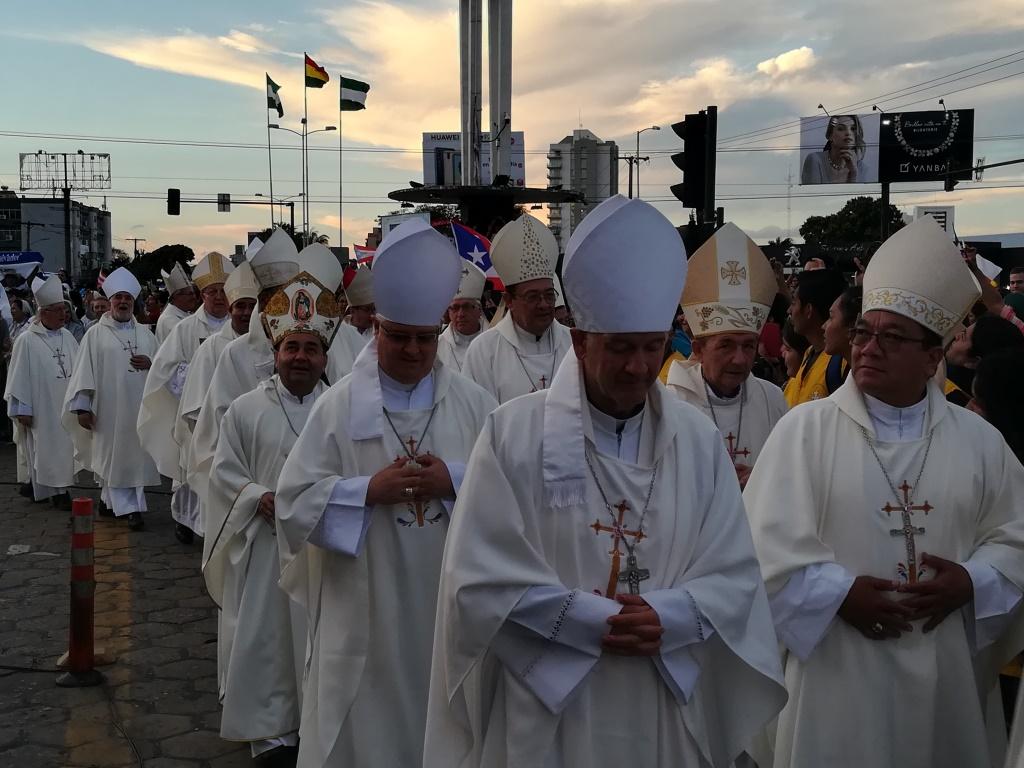Daniel Comboni
Comboni Missionaries
Institutional area
Other links
Newsletter
The CAM-5 (Congreso Misionero Americano) was held this year in Santa Cruz de la Sierra (Bolivia), from 10 to 14 July, hosted in the Don Bosco College. The theme reflected the message of the ‘Evangelii Gaudium’: the joy of the Gospel, the heart of the prophetic mission, a source of reconciliation and communion. The main objective was to “strengthen the missionary identity and commitment of the Church Ad Gentes in the Americas, to proclaim the joy of the Gospel to all peoples with particular attention to the peripheries of today’s world and at the service of a more just, supportive and fraternal society.”
The four thematic lines of this CAM-5 were: the Gospel, missionary joy, mission and reconciliation, mission and prophetism.
On the first day, after the words of welcome of the Archbishop of Santa Cruz, Mons. Sergio Gualberti, and the intervention of card. Fernando Filoni, prefect of the Congregation for the Evangelization of Peoples, were taken up the words of the Instrumentum Laboris: “the joy of the disciples and missionaries that has its deepest motivation in the personal encounter with the risen Christ”. In the afternoon, the participants gathered in the various workshops, mini-assemblies, theological meetings.
On the second day, there were two conferences: on the proclamation of the Gospel in today’s world (Monsignor Santiago Silva Retamales, Chilean Castro Bishop): “The missionary is born of the empty tomb and is a witness of the Risen Christ”, and on the disciples (Fr Sergio Monte Rondón, Bolivian, SJ) who are “witnesses of communion and reconciliation”.
The last day, there were two conferences, one by Mgr. Luis Augusto Castro Q., Archbishop of Tunja (Colombia) and one by Mgr. Vittorino Girardi, Comboni, bishop emeritus of Tilarán-Liberia (Costa Rica). Mgr. Castro reiterated the need to react to the temptation to manipulate God, that is, to have a God made in our image and likeness. Mgr. Girardi, on the other hand, spoke about the mission ad gentes inside and outside America. It was a missionary intervention, which emphasised the need for the continental Church to open itself to the mission ad gentes.
In the final proposals, the rapid and profound changes shaking the cultures and societies in this postmodern era have been taken into account. “Among these challenges, the Church is particularly concerned about the crisis of the family, the contempt and violence against life and human dignity, the violation of human rights, the economic domination of a few that generates unemployment and poverty, the panorama of injustice and the lack of solidarity that disregards the human being, the need to take care of Mother Earth, the worrying situation of inequality and violence to which women are subjected, the migrations, the indigenous population, some aspects of the Church, affected above all by the scandals of sexual abuse, the decline of priestly vocations, the weak and relativist modernity with its inherent negativity and immorality.”
Fr. Mariano ends his report with two observations: the absence of lay speakers and the problem of a continuous verification of the resolutions.

